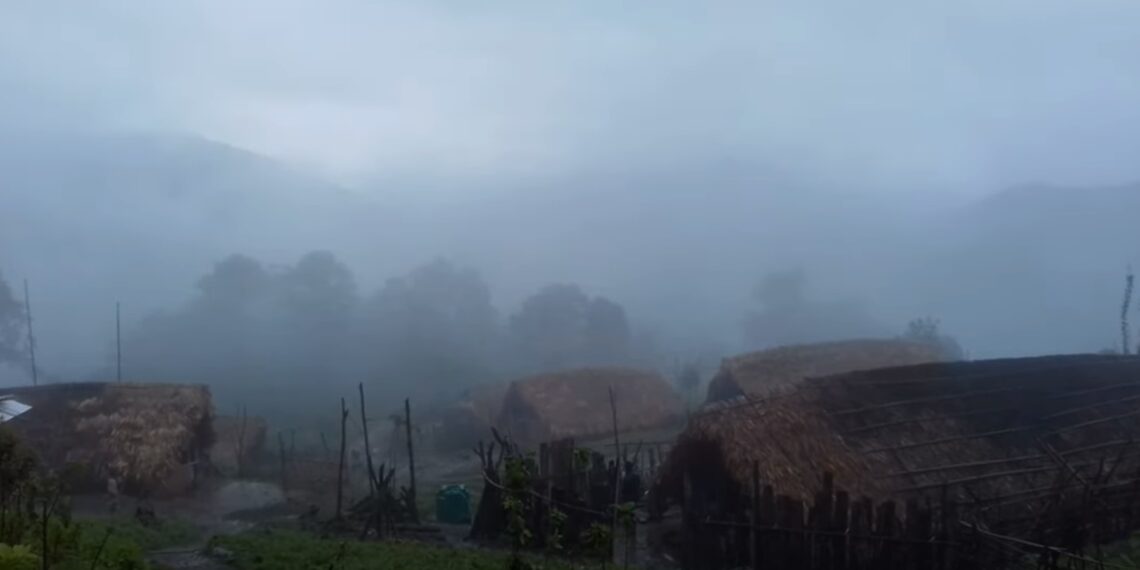KOHIMA: Nestled in the remote hills of Nagaland’s Tobu subdivision lies a small Konyak village which until recently was infamous for opium cultivation.
Named Obay Hoangup, the village bordering Myanmar, is situated at about 15 km from its parent village, Pessao, and houses about 28 households.
The village, lacking basic amenities and road connectivity, could only be reached after a strenuous 40–50-minute climb from the base of the hill.
“The lack of all basic necessities is a significant challenge,” said Sangti Konyak, president of the Tobu Area Students Union (Tasu), in a recent interview with a local newspaper.
Obay Hoangup was established as an extension of Pessao in 2014.
At that time, nearly every family had at least one member addicted to opium, a situation that went largely unchecked until late 2016.
It was then that the Joint Action Committee Against Opium Addiction (JACAOA), in collaboration with Tasu, launched a mass movement to combat opium trafficking and addiction.
Despite the destruction of their opium fields, the villagers of Obay Hoangup refused to abandon their home.
Intervention from the Block Development Officer of Tobu, Moba Konyak, led to the construction of a church in the village.
Sangti Konyak was invited to speak at the church, where he stressed on the importance of education and the need for a local school.
In 2018, the villagers asked Sangti for help in starting a school.
Recognising that he couldn’t do it alone, Sangti sought assistance from Tasu.
Under the “Teach for Tobu” campaign, an initiative aimed at reorganising and empowering the community through education, the former opium fields were transformed into a school—Hope Academy Obay.
Following a period of community sensitisation, a baseline assessment was conducted to establish the educational needs of the village.
The Pessao Students Union constructed a three-room school building, which was inaugurated on May 20.
Classes at Hope Academy Obay, staffed by voluntary teachers under Tasu’s sponsorship, began on June 1, providing basic education to around 30 children aged 3 to 9.
Although Hope Academy Obay has yet to be affiliated with the state’s school education board, Sangti stressed that the immediate priority is to provide basic education.
Looking ahead, Tasu has proposed that the state’s Education Department adopt one school each from the villages of Pessao, Yongkhao, Tamkoang, and Monyakshu.
Preliminary discussions with the Director of School Education took place on March 19, 2019, in Kohima.
The journey of Obay Hoangup from a village plagued by opium addiction to one that now houses a school, stands as a beacon of hope, illustrating how collective efforts can bring about profound change in even the most remote corners of the world.















